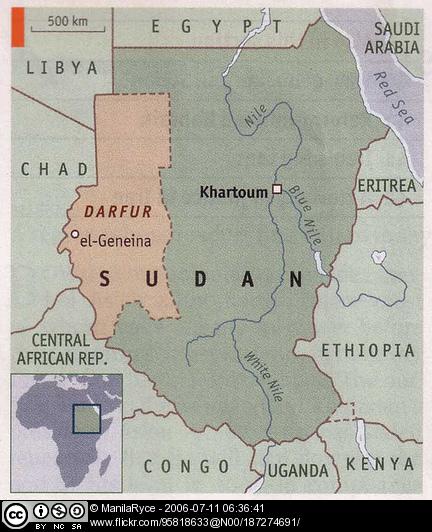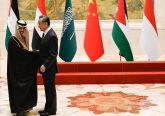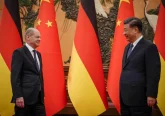 On June 21, at the Manor Road Building, Oxford University, Daniel Large and Luke Patey discussed the role of China and India in Sudan’s oil sector. This industry is of particular interest today, as on the 9th of July the country will split into Northern Sudan and Southern Sudan. The recent border clashes illustrate the lack of agreement between the two sides about the sharing of oil revenues. The two speakers situate this issue within an international context by contrasting the involvement of China and India and discussing the long-term prospects of Sudan’s oil industry, among other interesting questions.
On June 21, at the Manor Road Building, Oxford University, Daniel Large and Luke Patey discussed the role of China and India in Sudan’s oil sector. This industry is of particular interest today, as on the 9th of July the country will split into Northern Sudan and Southern Sudan. The recent border clashes illustrate the lack of agreement between the two sides about the sharing of oil revenues. The two speakers situate this issue within an international context by contrasting the involvement of China and India and discussing the long-term prospects of Sudan’s oil industry, among other interesting questions.
China’s involvement in Africa has become a hot topic in media and political discussions. This has concealed that of other Asian countries, such as India and Malaysia. Luke started out his talk by noting that many people are unaware of India’s involvement in Sudan’s oil sector. India, while having a much smaller commercial presence than China, has managed to avoid the negative publicity associated with China’s involvement in Sudan. The Indian government, like its Chinese counterpart, has implemented parallel economic and political missions in Sudan: investing into the oil sector while also contributing to peacekeeping in Sudan.
The seriousness of China’s engagement in Sudan’s oil sector is evident by the high level of Chinese policy-makers involved in bilateral negotiations. The recent decision of the Chinese government to recognise South Sudan demonstrates pragmatism is China’s predominant approach to Sudan, and possibly to its other African economic partners. The fact that the major part of oil reserves are located in South Sudan has outweighed China’s prior position not to negotiate with non-state actors.
Beyond the political uncertainties surrounding the development of Sudan’s oil industry, its long-term economic prospects appear relatively bleak, according to the speakers. Sudan is running out of oil mainly due to the poor recovery rate of Asian oil companies and lack of substantial new oil deposits. They might be dissuaded from investing into the oil fields if major political instability continues. However, as the actual operations of oil companies in Sudan, particularly those of Chinese companies, are highly non-transparent, valid predictions are difficult to make.
One of the questions raised in the Q&A by Professor Neil MacFarlane was the influence of oil revenues on Sudan’s governance. The discussant, Harry Verhoeven, suggested that there is a positive relationship between the two, and Sudan is trying to be a more responsible authoritarian regime. He used Sudan’s recent dam projects as one of the examples of this ‘responsible governance.’ It is unclear, however, to what extent oil revenues are distributed across the population, and whether there are governance projects beyond dams that benefit people at large. It is also uncertain whether China would play a positive role in encouraging better governance. Although as the speakers point out, in February 2007 Hu Jintao himself indirectly commented on the need for responsible governance in Sudan, but the practical effects of these speeches are yet to be seen.
As for competition between China and India in Sudan’s oil sector, China seems much less concerned about Indian competition, than India is about China’s. Sudan, however, might be benefiting from the presence of India, as it balances out its dependence on China, and grants it more negotiation leverage. The presence of both countries in Sudan is certainly an important issue to follow in the next few weeks, as we approach the division on the 9th of July and its aftermath.
Daniel Large is the Research Director of Africa-Asia Centre, SOAS; Luke Patey is at the Danish Institute for International Studies Ricardo Soares de Oliveira (DPIR/St Peter’s) served as the moderator, and Harry Verhoeven as a discussant
Maria Repnikova is a DPhil Candidate in Politics at Oxford University and a Graduate Editor of PoliticsinSpires.org. Her research is on comparative politics of China and Russia.








1 Comment
india sudan relation ship it is an historical rlation mainly human benift with china it is commercial relation